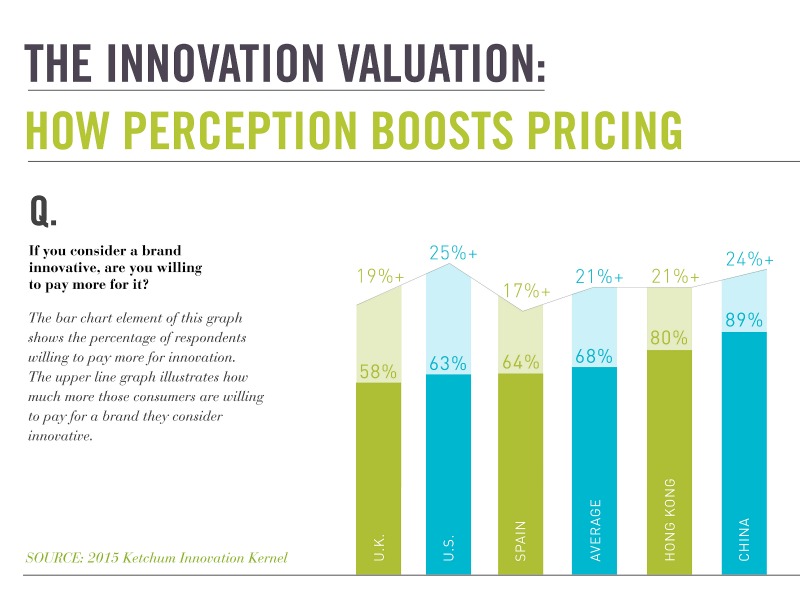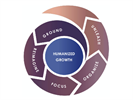Holmes Report 24 Mar 2015 // 9:32PM GMT

When it comes to innovation, consumers are wary of frequent product iterations, still rely mostly on third-party sources and consider design to be as innovative as technology, according to Ketchum's 2015 Innovation Kernel study.
The survey of more than 4,000 working adults across the US, UK, Spain, mainland China and Hong Kong showed that 68% of consumers are willing to pay — on average — 21% more for a brand they consider to be innovative. But tension sometimes exists between what a brand and consumer considers 'innovative.'
"Consumers would rather have you launch something once a year that makes a meaningful difference in their life," says Ketchum's global tech director Susan Butenhoff. "The tech industry has to get away from death by iteration — consumers don't think innovation means a rapid product cycle."
Unsurprisingly, the overuse of the word 'innovation' in the US and the UK has made consumers in these markets less likely than those in Mainland China and Hong Kong to pay a premium for 'innovation.' It's worth noting, however, those in the US who would pay more are willing to the highest premium (25%) for innovative products.
Even though many companies have invested significant resources into owned media channels, when it comes to innovation consumers still look to professional reviews (56%) and media articles (52%) for trusted information on 'innovation.' Just under half (48%) rely on information from friends and family, meanwhile 37% turn to social platforms.
"The undercurrent of these responses is consumers want to own their own destiny when it comes to innovation," Butenhoff points out. "Content marketing can be engaging but it won't replace professional reviews or third-party media."
Design sits alongside technology when it comes to innovation. For public relations, this puts more emphasis on visually-led storytelling — moving the industry farther away from its heritage in primarily text-led communications.
"Our roots were in having to differentiate ourselves by producing arcane amounts of information," Butenhoff adds. "We are transitioning away from that."


































.jpg)

















